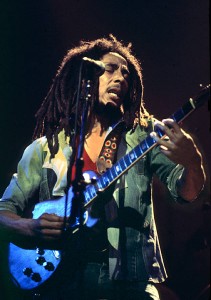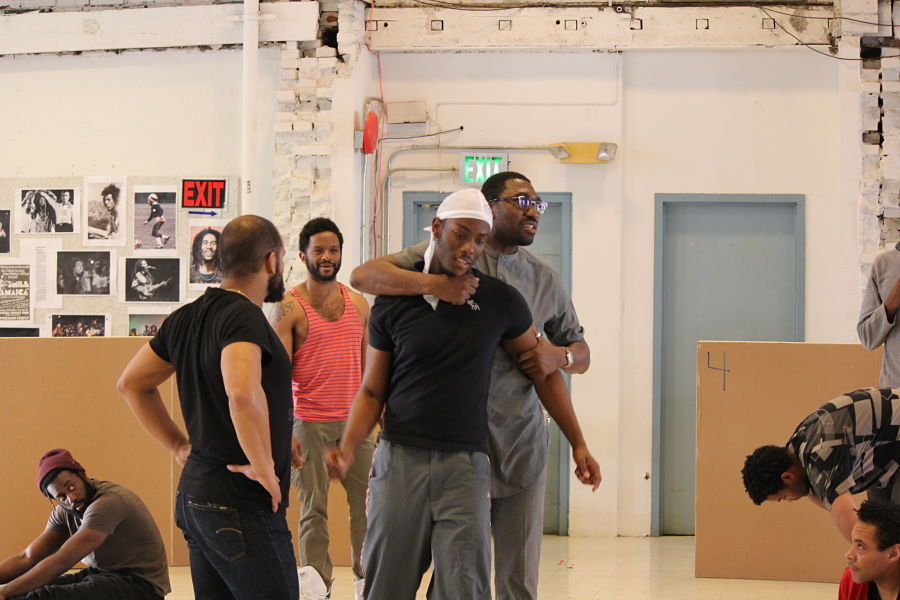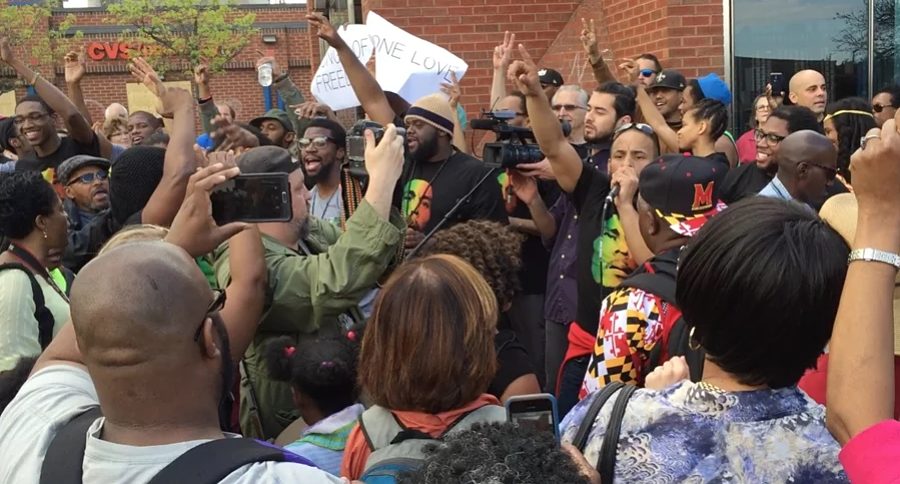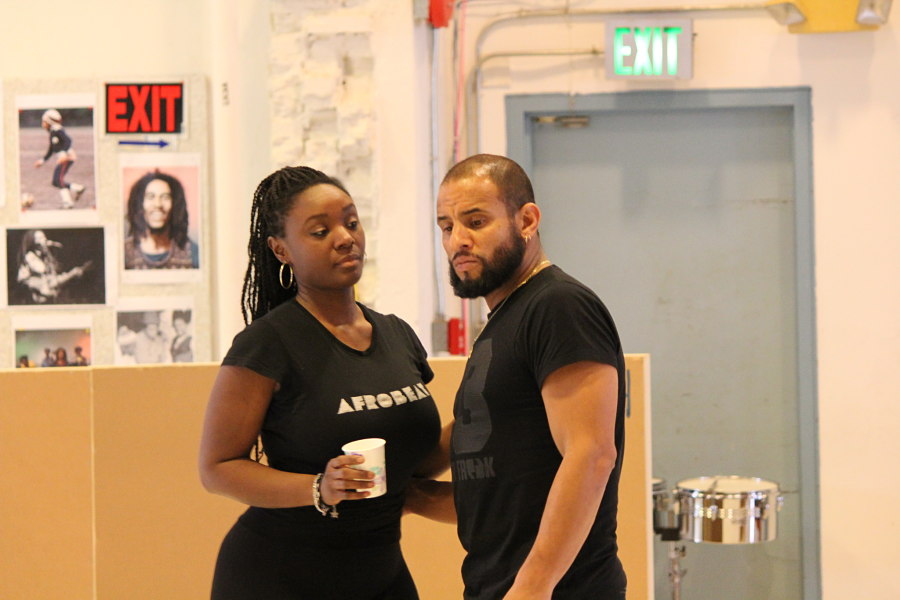BALTIMORE: As a teenager in London, Kwame Kwei-Armah despised reggae music and its leading star, Bob Marley. But he had a perfectly sound reason.
“My sister loved Bob Marley and reggae, and that meant I had to hate it,” says Kwei-Armah, a writer/director of Grenadian descent who’s now artistic director of Baltimore’s Center Stage, where the new musical Marley runs May 8–June 14. “Jamaican culture in Britain was the dominant black culture of my youth, but I pulled myself away from that just because of sibling rivalry.”
He outgrew this fit of pique by the age of 19, when, as he recalls, “It was Marley’s lyrics that brought me in.”
Fittingly enough, as words were his way into the singer/songwriter’s work, words are what Kwei-Armah is contributing as Marley’s book writer; he is also the show’s director. But he’s painfully clear on whose voice takes precedence.
“I’ve had to think: How many people are coming to hear the work of Kwame Kwei-Armah, and how many are coming to hear Bob Marley?” says the writer/director. “Once I was clear on that, I got my ego out of the way.”
This is actually Kwei-Armah’s second stab at a Marley-based musical. Eight years ago, he was approached by the singer’s estate with the rights to Marley’s song catalog but not his life story. The playwright wove Marley’s songs into a piece about the child soldiers of central Africa which, according to Kwei-Armah, made the workshop rounds to a general chorus of, “We like it, but where’s Bob?” When the estate came back to him in December of 2013, he said, with the reasonable query, “Why don’t we try it now with Bob in it?”

Kwei-Armah has certainly put Bob at the center of the new show, but not the full Marley, as it were. Instead he’s focused the action on an emblematic portion of the singer’s life and career: the nearly two-year period in the late 1970s when, after an assassination attempt in Kingston that injured him and members of his family, Marley holed up in London and made two of his most acclaimed albums, Exodus and Kaya. (Marley would die in Miami in 1981, at the tender age of 36.)
But though Kwei-Armah learned in his research that his family had shopped at some of the same London markets as Marley did during this stay there, the playwright said that the choice to set the play in his own hometown was “more about telescoping the action than about the fact that I’m also from London. I wanted to find the moment in this man’s life that typifies him, that was a manifestation of him.”
Contrasting his approach with that of Bill T. Jones and Jim Lewis’s Fela!—another musical biography, which tells bandleader Fela Kuti’s life story through the conceit that the audience is present at a concert in the singer’s Nigerian compound—Kwei-Armah said that Marley would use 27-30 of the singer’s songs to tell a more linear musical-theatre story, and to show the context that inspired those songs.
“I hope it’s more of an emotional ride than a documentary,” says Kwei-Armah. “We’re seeing a man at a particular moment, one many people describe as most fertile time in his life.” After being literally caught in the crossfire of Jamaica’s left/right political conflicts—a spillover of the Cold War—Marley “had to be questioning his own mortality and usefulness,” Kwei-Armah speculates.

That Marley made some of his most definitive music—songs from the period include “Three Little Birds,” “One Love,” “Is This Love” and “Jamming”—while far from home makes a kind of sense, given that exile from an ancestral homeland was a central theme in both his music and his Rastafarian religious practice, which looked to Africa as its wellspring and its destination. This sense of displacement, more than the London link, is where Kwei-Armah feels the closest affinity with the late singer.
“Like Bob Marley in London, I am an alien in a new land, as a Brit in America,” says Kwei-Armah. Inadvertently paraphrasing another reggae classic, he summed up the play’s root question as, “How does one do their art in a strange land?”
You might say that the U.S. is feeling especially estranged from people of African descent at the moment, with Baltimore the most recent and arguably most intense flashpoint in a wave of riots and protest spurred by police misconduct against African-American populations. It was in a spirit of solidarity that the cast of Marley recently took their namesake’s music to the corner of North and Penn in downtown Baltimore to sing “songs of freedom out on the street,” as Kwei-Armah put it.
Noting the recent visit of the Dalai Lama, as well an upcoming Rally 4 Peace event organized by Prince, Kwei-Armah marvels, “We kind of feel like we’re at the epicenter of America right now.”

What might Bob Marley sing were he downtown at North and Penn? It’s doubtful that it would have been “One Love.” He might instead have offered some choice words from the 1973 cut “Slave Driver”:
Slave driver, the table is turn
Catch a fire: gonna get burn
Or this, from “War,” in 1976:
Until the philosophy which hold one race superior
And another
Inferior
Is finally
And permanently
Discredited
And abandoned
Everywhere is war
Me say war.


